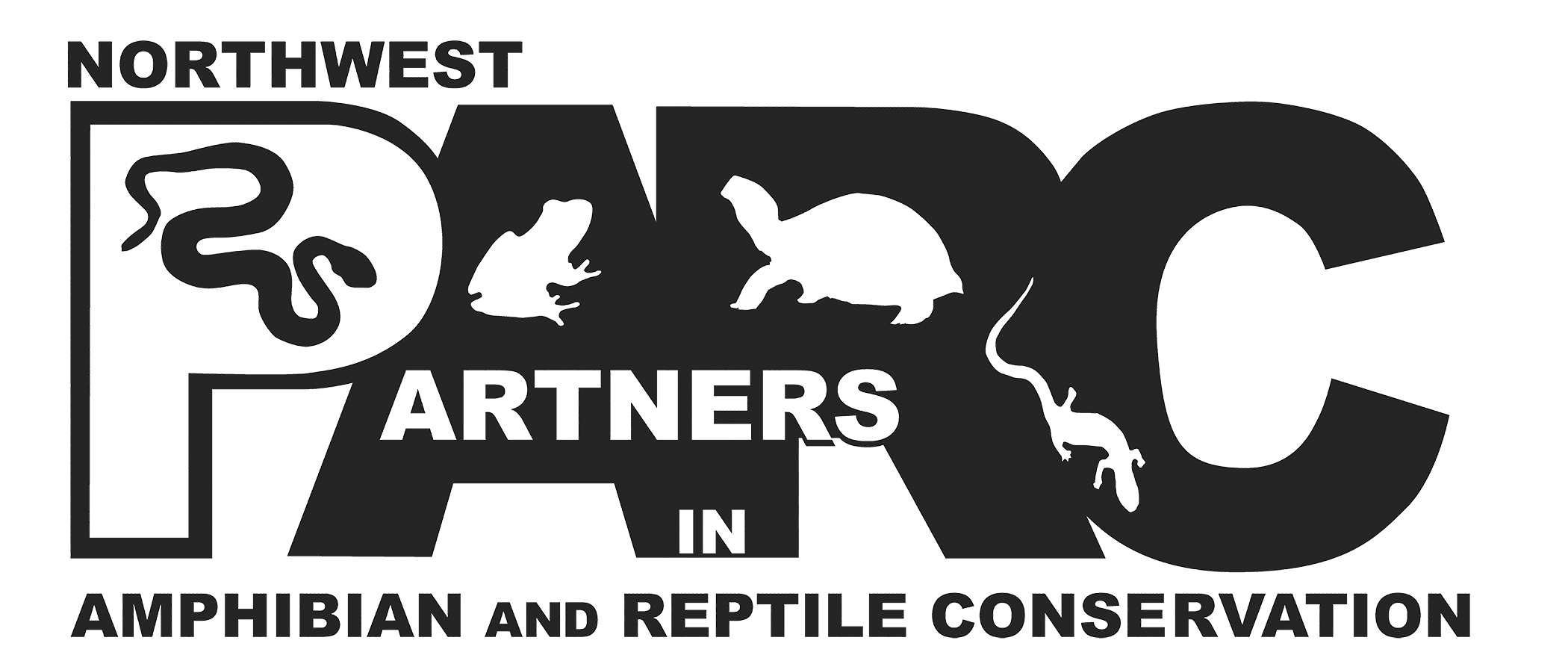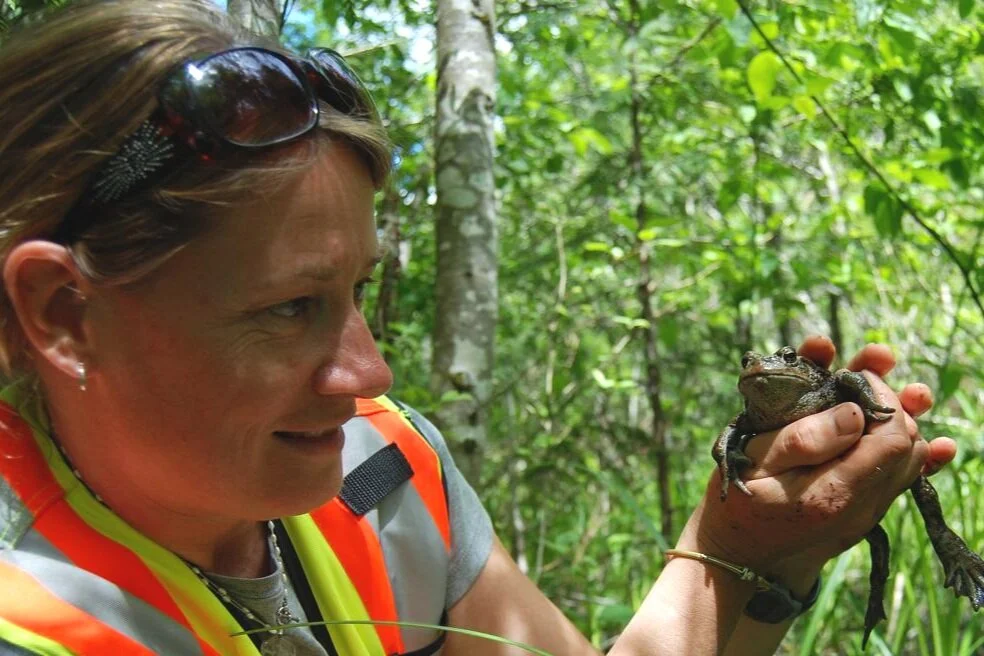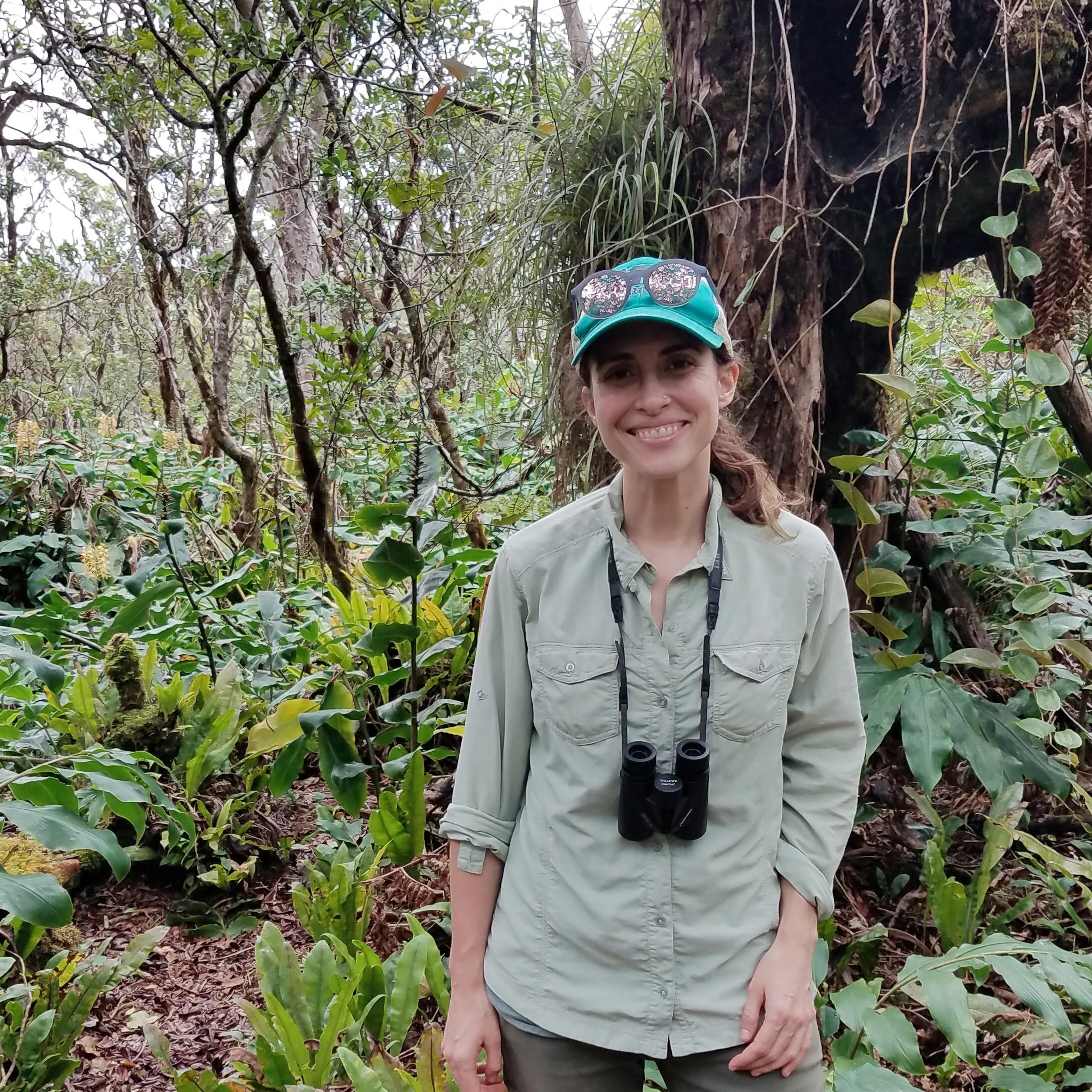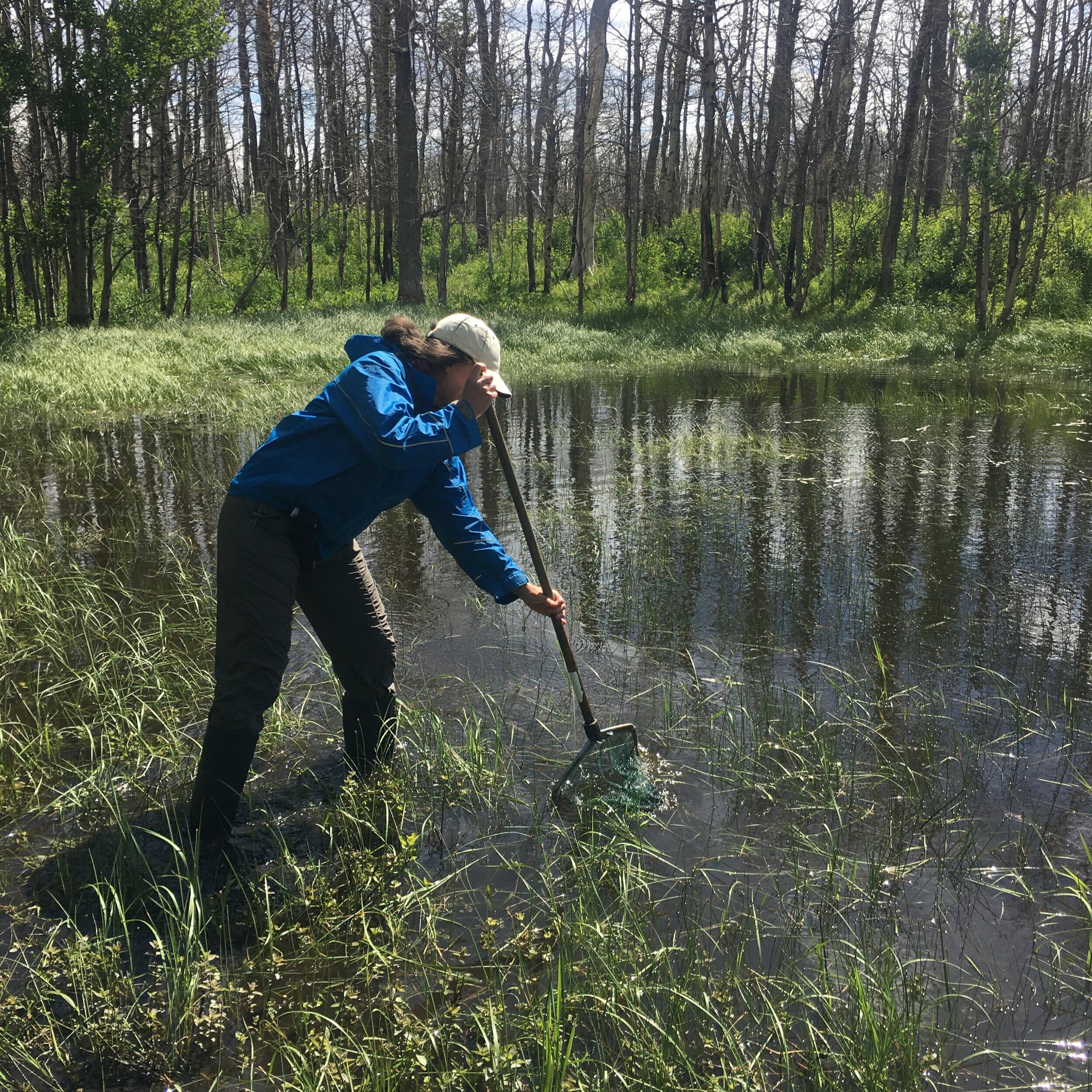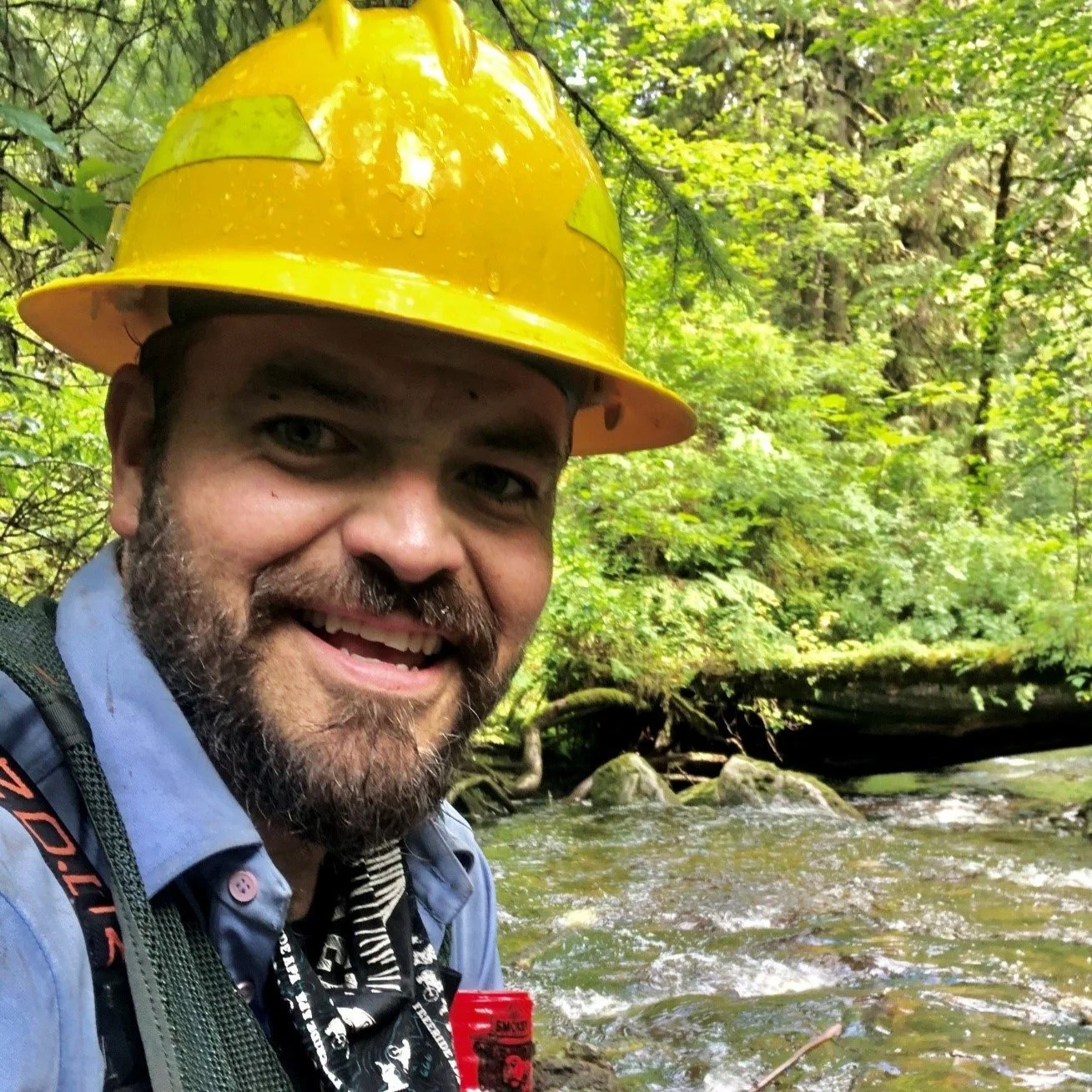Above: Oregon Spotted Frog Larvae © Christopher Brown
Update Your Email!
〰️
Update Your Email! 〰️
Are you missing out? Update your email with NW PARC!
Attention NW PARC members, especially those of you who have been among us for a while!
The bounce rate on our newsletter mailing list is at about 30% now, because many of you apparently have changed your email addresses since the date you signed up to NW PARC. Or maybe you retired, or changed internet provider, or got a different job. Or your address may have been changed for you by your agency, organization, or employer without any action on your part.
Problem is, there’s no automatic way for our contact list to detect your new email address. Thus, you may have been missing out on notifications of upcoming events and news since the change.
It’s time for the Great Update.
If you haven’t heard anything from us in a while (e.g., you didn’t receive either of the two mailings that went out on November 21 and 22), please contact us at membership.northwestparc@gmail.com and send us your current email address and any other changes you would like us to make to your membership contact info (change of name, last or first; change of affiliation or address [optional]).
A particular shout out to all USDA Forest Service employees: when the domain name for FS email switched from “fs.fed.us” to “usda.gov”, they forwarded mail for a while. This is no longer the case, so you automatically joined the bounce list. Either send us your new FS email, or a different personal email if you prefer (particularly if retirement is nearing your horizon).
If you want to keep in touch and stay involved, please help us out by updating your email and contact info.
NWPARC wants you!
Have you wanted to get involved in NWPARC? NWPARC is currently accepting applications and nominations for co-Chair and Treasurer positions for 2023. If you are interested or know someone that seems perfect for these positions drop an email to us.
Our Mission Statement
To conserve amphibians, reptiles and their habitats as integral parts of our ecosystem and culture through proactive and coordinated public-private partnerships.
NW PARC's Origins and Makeup
The Northwest chapter of Partners in Amphibian and Reptile Conservation's (NW PARC) was officially launched in 2008 in Missoula, Montana. Our region covers all or parts of nine U.S. states and three Canadian provinces and territories.
The regions of PARC, including the Northwest chapter in green
Our membership includes individuals from government and nongovernmental organizations, conservation groups, museums, pet trade industry, environmental education centers such as zoos and nature centers, energy and forestry industries, educational institutes including universities, herpetological societies, and environmental consultants. The diversity of our membership makes PARC the most comprehensive conservation effort ever undertaken for amphibians and reptiles.
Members of NW PARC are committed to promoting amphibian and reptile conservation.
A Unique Conservation Network
PARC includes all reptiles and amphibians
PARC is habitat focused
PARC includes all individuals, organizations, and agencies that have an interest in reptile and amphibian conservation
PARC focuses on endangered and threatened species and keeping common native species common
PARC is
A diverse group of like-minded citizens, professionals, and organizations
An open forum for discussing herpetofaunal conservation
A national and international conservation network
A resource for everyone who values herpetofauna and their habitats
Based on local, regional, and national efforts
An advocate of inclusive reptile and amphibian conservation
PARC is not
A competitor
A funding organization
A policy maker
Steering Committee Members
Laura Sprague: Senior Co-chair (US Fish and Wildlife, ID)
Katy Weil: Out-going co-chair (Metro Portland, OR)
Vacant: Junior Co-chair
Vacant: Treasurer
Betsy Howell: Past Co-chair, Out-going Treasurer (US Forest Service, WA)
Dede Olson: Secretary, Past Co-chair, Awards (US Forest Services, OR)
Chuck Peterson: Idaho PARC, Co-Chair Awards, PARCAs (Idaho State University, ID)
David Pilliod: Past Co-chair, In Your Area, ID Representative (US Geological Survey, ID)
Elke Wind: Membership, Past Co-chair (E. Wind Consulting, British Columbia)
Laura Guderyahn: PARCAs (Portland Parks and Recreation, OR)
Vikki Jackson: Website (Whatcom County Amphibian Monitoring Program, WA)
Janene Lichtenberg: In Your Area, Montana Representative (SKU)
Jennifer Rowe: Social Media (US Geological Survey, OR)
Mark Thompson: Upper British Columbia Representative (Ecologic Consultants, BC)
Kathryn Ronnenberg: Newsletter Distribution (US Forest Service, OR)
Lisa Hallock: Fundraising Chair (WA Department of Fish and Wildlife, WA)
Julie Lee-Yaw: Alberta CA Representative (University of Lethbridge)
Christine Parker-Graham: Newsletter Content, Veterinarian Representative (US Fish and Wildlife Service, WA)
Christopher Cousins: Social Media Chair, Student Representative (Oregon State University)
Leigh Anne Isaac: British Columbia Rep. (BC Ministry of the Environment)
Jamie Bettaso: N. California Rep. (US Forest Service, CA)
Eric Castro: Alaska Rep. (US Forest Service, AK)
Who We Are
Laura Sprague
Laura Sprague
Laura Sprague received her B.S. in Fisheries from Humboldt State University with a minor in Microbiology. She started her career in 1994 and has been an aquatic animal health biologist for U.S. Fish & Wildlife Service Pacific Northwest Fish Health Program in Orofino, Idaho since 1997. In addition to monitoring the heath of fish and aquatic organisms on Federal and Tribal hatcheries, she is the project manager for the National Wild Fish Health Survey for the Pacific Northwest, where she surveys for aquatic pathogens in wild fish and amphibian populations in Idaho, Washinton, and Oregon. Besides her passion for amphibians, she enjoys working with multiple inter- and intra-agency partners to develop biosecurity plans to prevent the introduction and spread of pathogens and aquatic nuisance species, as well as mentoring students to help develop their passions. She is currently the USFWS State AIS Coordinator in addition to her other responsibilities.
Katy Weil
Katy Weil
Katy Weil has worked in wildlife conservation and environmental public policy for 34 years. She is currently serving as a senior science analyst within the Conservation Program for Oregon Metro Parks and Nature. She has been with Metro since 1998, and before that was the Oregon/Washington Coordinator for Partners in Flight as well as a program director for the Audubon Society of Portland. Prior to that Katy was a consultant for the United Nations Environment Programme, working with the Terrestrial Ecosystem and Programme Coordination Units, as well as working previously with the US Fish and Wildlife Service in the northeast. Oregon Metro’s Conservation Program manages and restores over 16,000 acres of natural areas and parks within the three counties in the Willamette Valley. Metro's program focuses upon attaining a desired future condition for wetlands, uplands, and riverine habitats via removal of invasive vegetation, planting of native material, and long-term stewardship. Monitoring these sites for response to restoration and maintenance actions involves amphibian, avian, mammal, and some reptile survey. Katy has a background in wildlife biology, particularly effectiveness monitoring and management, and applies this within a restoration context. She also confesses to be a happy bird and herp geek in her spare time, and thankfully her ten year old son shares that love of animals and natural places.
Betsy Howell
Betsy Howell
Betsy Howell began her wildlife career in 1986 as a volunteer surveying for northern spotted owls on the Mt. Hood National Forest in Oregon. After receiving her B.S. in Wildlife Management from Washington State University in 1987, she returned to the Mt. Hood as a biological technician. For 27 of the last 35 years, Betsy has worked for the U.S. Forest Service, surveying for many different species and working on many different habitat improvement projects. Amphibians and reptiles and carnivores are probably her favorite animals to work with, but really everything is interesting. In her other life, she is a freelance writer and has published articles on salamanders, snakes, spotted owls, and Olympic marmots. Betsy has been involved with NW PARC since 2008 and served as co-chair from 2015-2018 and treasurer from 2013-2020.
David Pilliod
David Pilliod is a Research Ecologist at the USGS Forest and Rangeland Ecosystem Science Center in Boise, Idaho. David has been studying amphibians and reptiles in the Northwest since 1995. He has been involved with NW PARC since the inaugural meeting in 2008 and served as Co-chair from 2009-2013.
David Pilliod
Elke Wind
Elke Wind
Elke Wind is a self-employed contract biologist working out of Nanaimo, British Columbia on Vancouver Island. She has more than 20 years experience studying amphibian populations, specializing in habitat management issues related to timber harvesting, non-native species, rural and urban development, and linear infrastructure (e.g. roads, right of ways). Ms. Wind is currently a member of NW PARC steering committee, was a former co-chair, and was involved in the development of various PARC products (e.g. HMG's).
Dede Olson
Dede Olson
Dede received her Ph.D. in 1988 from the Department of Zoology at Oregon State University. Currently, she is a Research Ecologist with the USDA Forest Service Pacific Northwest Research Station in Corvallis, Oregon. Dede’s research interests include examining issues of conservation biology and ecology of amphibians in western Oregon. She has Courtesy faculty appointments at Oregon State University in the Departments of Fisheries & Wildlife, Zoology, and Forest Science. She serves as Associate Editor for Herpetological Review, Lead of the Global Mapping Project for amphibian chytridiomycosis, and is past Co-Chair of Partners in Amphibian and Reptile Conservation.
Laura Guderyahn
Laura Guderyahn
Originally from Chicago, Laura Guderyahn moved to Portland in 2006 to serve as the Watershed Restoration Coordinator for the City of Gresham. After working for 8 years to implement restoration projects and monitor amphibian and reptile populations at over 300 sites around Gresham, she now works with the City of Portland's Land Stewardship - East program as a Natural Resources Ecologist. In this position, she conducts wildlife surveys and manages natural resource projects in a variety of habitats throughout Portland Parks and Recreation natural areas. She collaborates with technicians, planners, scientists, engineers, permit authorities, contractors, community volunteers and non-profit organizations to develop and implement natural resource management strategies and solutions. Laura has a BA in Biology from Augustana College in Illinois and a Master’s degree in Conservation from Ball State University in Indiana.
Vikki Jackson
Vikki Jackson
Vikki Jackson is a recently retired wetland ecologist. Her work with wetlands has led to an interest (some would say obsession) with amphibians. Vikki has been involved in amphibian projects in Western Washington including as the project lead for a citizen science project for amphibian documentation within the Chuckanut Mountains and as a project coordinator for another citizen science based amphibian survey on BP lands in Ferndale, WA. Most recently she has served as the program manager for the Whatcom County Amphibian Monitoring Program (WCAMP) since 2013. Her work with WCAMP has included research and documentation of habitat use, restoration, and census work on Oregon Spotted Frog in Whatcom County since 2011 as well as amphibian inventories, and community science development. She now spends half the year in Washington and the other half in Southern Arizona (Herp nirvana).
Janene Lichtenberg
Janene Lichtenberg
Janene is Faculty and Chair of the Wildlife and Fisheries Department at Salish Kootenai College (SKC), Pablo, Montana. She has served on the NW PARC Steering Committee since the first meeting in 2008. Her interest in amphibians, reptiles and other wildlife has been life-long. Her first job was caring for the animals, including several reptiles and amphibians, at the Ogden Nature. While pursuing her B.S. in Wildlife and Fisheries at Utah State she worked multiple seasonal and campus positions as a Biological Technician. She completed her M.S. Thesis at the University of Arkansas then spent two years as an Ecologist for the U.S. Geological Survey, National Wetlands Research Center. During her time with USGS she worked on amphibian monitoring and habitat association projects before accepting a position as a Wildlife Biologist with the Confederated Salish and Kootenai Tribes. During her 12 years with the Tribes she worked with many species and on a variety of projects including a reintroduction of Northern Leopard Frogs to the Flathead Reservation. She began teaching at SKC in 2013 and developed the Wildlife and Fisheries Degree program. She spends her free time hiking, biking, skiing, birding, and ‘herp’ing with her two dogs, three sons, and husband Dennis (although not necessarily in that order).
Chuck Peterson
Chuck Peterson is a Professor in the Department of Biological Sciences where he teaches a variety of biology courses and advises graduate students. He also is the Affiliate Curator of Herpetology for the Idaho Museum of Natural History. Chuck’s research interests include the spatial and physiological ecology and conservation biology of amphibians and reptiles. Much of his work has focused on reptile populations on Idaho’s Snake River Plain and on amphibian populations in the Greater Yellowstone Ecosystem. He has been involved with PARC since its inception in 1999, serves on the steering committee of Northwest PARC, and helped found the Idaho Chapter of PARC in 2000, which he still coordinates. He and his students have contributed to several PARC publications. He has conducted herpetological training sessions for many organizations and is heavily involved in outreach education activities. He is currently focusing on a citizen science project utilizing the iNaturalist mobile application to document the occurrence of amphibians and reptiles in Idaho. Chuck is also an avid nature photographer and seeks to use his photography to conserve and restore amphibian and reptile species and their habitats (https://www.flickr.com/photos/petechar/).
Chuck Peterson
Jennifer Rowe
Jennifer Rowe
Jennifer is a Wildlife Biologist with the U.S. Geological Survey Forest and Rangeland Ecosystem Science Center in Corvallis, Oregon. In her current role, she’s involved in planning and analyses for diverse projects related to amphibian conservation, many of which are supported by the USGS Amphibian Research and Monitoring Initiative (ARMI). Originally from Michigan, Jennifer completed a B.S. in Ecology and Evolutionary Biology from the University of Michigan before migrating west to earn her M.S. in Wildlife Science at Oregon State University. Much of her research focuses on amphibian responses to biotic and environmental stressors – such as disease, habitat change, and invasive species – within a community context. Her past positions led her to Washington and the Oregon Cascades to study Oregon spotted frog habitat associations and movement patterns. She feels fortunate her work allows her to live and play in the beautiful places shared by the species she studies. Jennifer attended her first joint meeting in Gig Harbor, WA in 2011 and is happy to now join NW PARC as a Steering Committee member.
Kathryn Ronnenberg
Mark Thompson
Mark Thompson
Mr. Mark Thompson is an adjunct faculty member in the University of Northern British Columbia (UNBC) Ecosystem Science and Management Program. He is also employed with EcoLogic Consultants Ltd. His work and interests extend to a diversity of topics in ecosystem monitoring, classification, and research across western Canada and into the arctic. His primary or focal areas of interests are the migration and metapopulation ecology of amphibians and reptiles in northern habitats. He completed his Master’s thesis on phylogeography of long-toed salamanders in 2003 (University of Calgary, MSc Zoology) and completed an additional Master’s thesis in 2012 (UNBC, MEd Education) that was a study into outdoor education using amphibians as the teaching subject. Mr. Thompson has supervised and managed a number of herpetology focused projects in consultancy work with stakeholders, including partnership with academics, governments, First Nations, industries, and non-profits. He is also a registered professional biologist and a certified professional in sediment and erosion control. He has written papers in herpetology, including a book chapter on migration, several natural history notes on wood frogs, long-toed salamanders, and a recent paper on parasitism causing myiasis in Western Toads, Anaxyrus boreas. Mr. Thompson partners with local First Nations on his main herpetology projects. He is interested in advancing collaborative conservation initiatives in traditional territories, including herpetology work with Frog Clans in northern British Columbia.
Julie Lee-Yaw
Julie Lee-Yaw is an Assistant Professor at the University of Lethbridge. Her lab studies the ecological and evolutionary processes shaping the distribution of amphibian populations in Canada. Using a variety of methods including large-scale field surveys, spatial modeling, and genomics, research in the lab is seeking to answer the question: Why are species where they are (and not elsewhere)? And what do the answers mean for the future of amphibians as the environment changes? You can find more about Julie on this website: Julie Lee-Yaw
Jamie Bettaso
Jamie Bettaso
Jamie Bettaso, originally from Michigan, he moved to northern California in 1992 to attend Humboldt State. He finished a B.S. in Wildlife Biology from Humboldt State University in 1995 and an M.S. in 2004. He worked on seasonal field projects from 1992 to 2010 with northern spotted owl surveys, small mammal trapping and mostly herpetofauna surveys in wetland, streams, rivers and high elevation lakes. He has worked for BLM, USFS, USFWS and for the last 6 years has been back with the USFS on the Six Rivers NF station at the Lower Trinity Ranger District.
Eric Castro
Eric Castro
Eric Castro graduated from California State University, Stanislaus in 2005. He’s currently the District Fish Biologist with the U.S. Forest Service in Petersburg, Alaska. He maintains that since amphibians rely upon water for some to all of their life cycles, the amphibians of Southeast Alaska qualify as “fish” to justify his efforts. As a youth running around the Sierra Nevada Mountains in California, he gained a fascination for herpetology capturing alligator and horned lizards, newts and salamanders, and garter and gopher snakes around his home. Eric’s first pets were a trio of bearded dragons that he raised from two inch hatchlings through their lives—and may have set an unofficial record for longevity at 15 years! Early in his career, he accepted a native aquatics position in southwestern Utah and some of the duties were locating boreal toads in the Uintas and Northern leopard frog in the vernal pools along the Utah/Nevada border.
For the last couple years, Eric’s personal interests led him to the muskegs of North Mitkof Island where a population of Columbia spotted frog reside. During the height of the Covid lockdown, Eric occupied himself with these amphibian locating missions, and with the help of a few local “froggers”, identified four previously unmapped breeding sites. Currently, Eric is establishing a citizen science monitoring program with Petersburg school district staff and students to monitor the development and timing of the frog’s life cycles, and continue scouting out breeding sites using historic observational data. In coordination with the Tongass National Forest’s renewed interest in amphibians and their pathogens, Eric initiated regular monitoring of 12 ideal amphibian breeding sites on Mitkof Island, with visual and eDNA sampling, in order to establish baseline evidence and relative health of amphibian populations.
Christopher Cousins
Christopher Cousins
Christopher is a Wildlife Science PhD student in Dr. Tiffany Garcia's lab at Oregon State University. His graduate research focuses on headwater streams and amphibian communities in the Pacific Northwest, utilizing environmental DNA (eDNA) to better validate and inform climate refugia models. In his free time, Christopher enjoys maintaining his miniature orchids and other vivarium plants, taking photos of herps, and reading.
